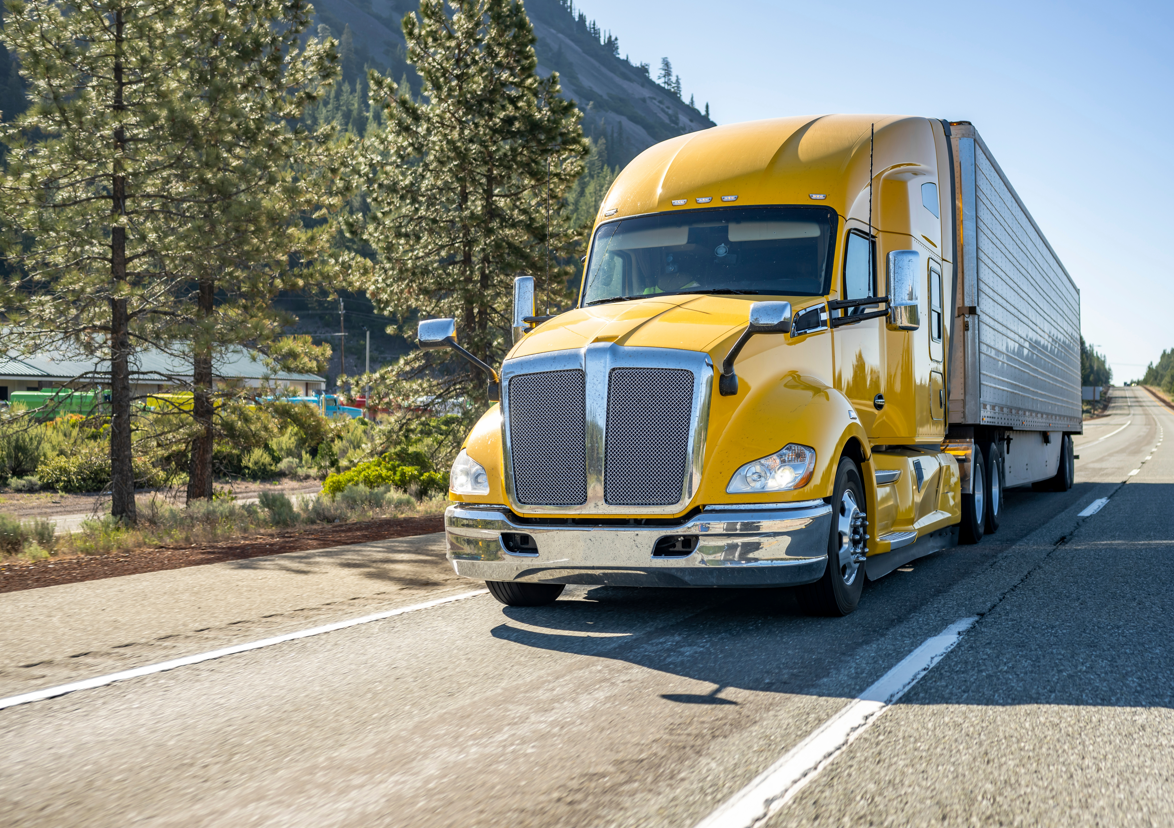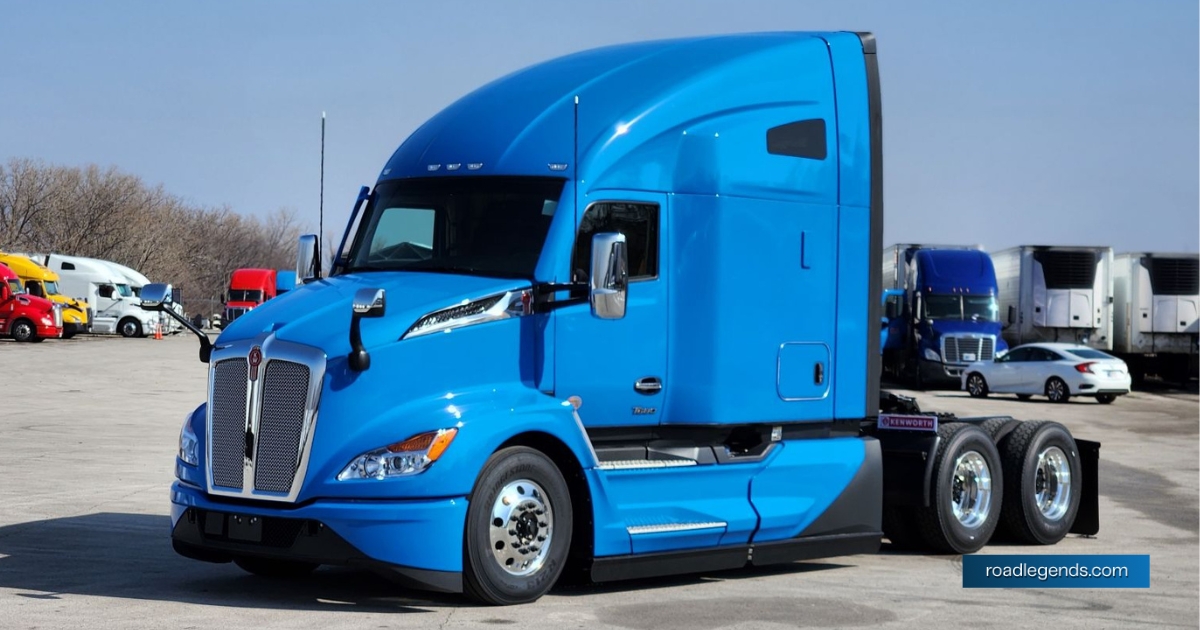Lease Purchase Trucking Companies in Texas | Your Guide
If you’re looking to become your own boss in the trucking industry without the massive upfront cost of buying a rig, lease purchase trucking companies in Texas offer a compelling path forward. This guide will walk you through everything you need to know about these programs, from how they work to choosing the right partner for your journey. We’ll cut through the industry jargon and give you the straight facts, helping you understand if this model is the right fit for your career and financial goals. Navigating the world of truck ownership can be tricky, and a lease purchase agreement is a significant step that deserves careful consideration.

What Exactly is a Lease Purchase Program?
At its core, a lease purchase program is a financing arrangement. A trucking company provides you with a truck that you agree to lease with the intention of buying it at the end of the contract term. Think of it as a long-term rental with an option to own. You make weekly or monthly payments, and a portion of those payments often goes toward the final purchase price.
Unlike a company driver, you are typically responsible for your own operating costs like fuel, tolls, and routine maintenance. However, you also keep a much larger share of the revenue from each load you haul. This model is designed to give you a taste of being an owner-operator without the credit checks or large down payment usually required for a traditional bank loan. It’s a test drive for business ownership on the open roads of Texas and beyond.
How Lease Purchase Agreements Work in Practice
Understanding the mechanics is crucial before you sign on the dotted line. While programs vary, most follow a similar structure.
- The Contract: You’ll sign a legal agreement outlining the lease term (often 3-5 years), the weekly payment amount, and the final buyout price of the truck.
- Revenue and Payments: You are paid a percentage of the revenue for each load. From that income, your lease payment, fuel, and other expenses are deducted. What remains is your profit.
- The Path to Ownership: A key feature is the equity build-up. Some companies apply a part of your payment toward the purchase price, so you’re building ownership stake with each payment you make.
- Program Completion: Once the lease term is over and you’ve made all the payments, you own the truck outright, or you may have a final “balloon payment” to secure the title.
Top Lease Purchase Trucking Companies Operating in Texas
Texas is a major hub for the trucking industry, and many national carriers with strong lease purchase programs have a significant presence here. Here’s a look at a few notable names, but always conduct your own due diligence.
| Company Name | Program Highlights | Fleet Age | Notable Feature |
|---|---|---|---|
| Prime Inc. | Well-established program with training options for newcomers. | Newer | Offers both company driver and lease purchase paths. |
| CR England | Provides dedicated lanes and consistent freight. | Mixed | Has a strong focus on team driving operations. |
| Stevens Transport | Specializes in temperature-controlled freight. | Newer | Based in Dallas, Texas, offering a regional focus. |
Remember, the best company for you depends on your specific goals, the type of freight you want to haul, and the level of support you need. An industry veteran with a decade of experience in truck evaluation, I always advise drivers to look beyond the marketing and speak directly with current lease operators at the company.
The Real Deal: Pros and Cons You Must Weigh
Like any major decision, entering a lease purchase agreement comes with its own set of advantages and challenges.
Advantages of a Lease Purchase
- Lower Barrier to Entry: The primary draw is the low or no money down requirement, making truck ownership accessible.
- Builds Business Acumen: You learn to manage expenses and run your own small business within a larger, supportive framework.
- Potential for Higher Income: As you are paid a percentage of the load, your earning potential is often higher than that of a company driver.
Disadvantages and Risks to Consider
- Financial Responsibility for Costs: Unexpected repairs, fluctuating fuel prices, and other costs come directly out of your pocket.
- Contractual Obligations: You are locked into a long-term contract. If freight is slow, making your weekly payment can become stressful.
- Potential for Unfavorable Terms: Some programs have been criticized for high buyout prices or maintenance clauses that leave the driver with significant costs.
According to a American Trucking Associations report, driver turnover remains high, partly due to the challenges owner-operators face with operational costs. This underscores the importance of a solid financial plan.

Key Questions to Ask Before You Sign
Protect yourself by getting clear answers to these critical questions from any company you’re considering.
- What is the total buyout price at the end of the lease?
- What is the exact payment structure, and what expenses am I responsible for?
- How is freight and dispatch support handled? Is there a dedicated lane or consistent freight?
- What is the company’s policy on truck maintenance and repairs? Who pays for what?
- Can I see a sample contract and speak with a few current lease operators in your program?
As one experienced fleet manager, John Keller, noted in a Commercial Carrier Journal interview, “The success of a lease operator hinges on the transparency and support of the carrier. It has to be a true partnership.”
Is a Texas Lease Purchase Program Right for You?
This model is not for everyone. It’s best suited for disciplined, business-minded drivers who are comfortable with variable income and managing costs. If you have a strong safety record, understand the financial risks, and are driven by the goal of owning your own truck and business, a lease purchase program with a reputable Texas-based carrier could be your perfect launchpad. Do the math, ask the hard questions, and take your time to find a partner, not just a provider.
Frequently Asked Questions
Can I make good money with a lease purchase trucking company?
Yes, the potential is there, but it’s not guaranteed. Your income is directly tied to your ability to manage business expenses like fuel, maintenance, and your lease payment. The most successful operators are those who treat it like a business, not just a driving job.
What happens if my truck breaks down?
This is a critical question to clarify in your contract. Reputable companies often have a maintenance fund or a clear policy on repairs. In many cases, you are responsible for routine maintenance, while the company may cover major mechanical failures, but the specifics can vary widely.
How long does a typical lease purchase last?
Most lease purchase contracts run between 3 to 5 years. This timeframe is designed to allow you to build equity and prepare for the final buyout. Shorter terms may have higher weekly payments, while longer terms mean more time paying interest.
Can I walk away from the lease if it’s not working out?
Walking away can be difficult and costly. These are legally binding contracts. You may face significant penalties or be held liable for the remaining payments. It’s essential to review the termination clause with a fine-tooth comb before signing.

Sources:








